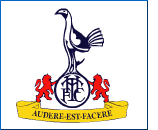| View previous topic :: View next topic |
| Author |
Message |
Eazy_E

Joined: 30 Oct 2003
Location: British Columbia, Canada
|
 Posted: Tue Dec 09, 2003 2:55 am Post subject: Teaching Grammar Posted: Tue Dec 09, 2003 2:55 am Post subject: Teaching Grammar |
 |
|
I have been working at a hagwon for over three months. One of the first things I noticed about the English abilities of the children here is that they absorb vocabulary very quickly, but can't quite grasp concepts of grammar. Hence, they can remember a lot of words but can't string two of them together.
Related to this is the fact that vocabulary and rote memorization is a lot easier to teach, and easier to develop games and activities to go with it. Right now I use the "Up and Away" series for a lot of my classes. The syllabus is grammar-based and it's necessary to find a classroom activity to go along with each lesson.
Do any experienced teachers have ideas for how to teach grammar using activities and games? I know getting them to write in their books would work too but.... sometimes active learning is the best.
Any help? |
|
| Back to top |
|
 |
kangnamdragon

Joined: 17 Jan 2003
Location: Kangnam, Seoul, Korea
|
 Posted: Tue Dec 09, 2003 3:46 am Post subject: Posted: Tue Dec 09, 2003 3:46 am Post subject: |
 |
|
| I would suggest having them use complete sentences during the games. The grammar is built into the sentences. Once they memorize sentences they will be able to substitute different nouns and verbs using the sentence structures they know. |
|
| Back to top |
|
 |
schwa
Joined: 18 Jan 2003
Location: Yap
|
 Posted: Tue Dec 09, 2003 5:02 am Post subject: Posted: Tue Dec 09, 2003 5:02 am Post subject: |
 |
|
I second kangnam dragon's suggestion -- reward full-sentence responses in games. I accept one-word answers for one point but give 2 for a complete correct sentence, however simple. They really try. If they make a mistake, someone else can scoop the point by correcting it.
I dont like substitution drills but sometimes I'll write an easy open-ended sentence on the board featuring the target grammar & have each student in turn complete it with their own ideas. I think it personalizes the grammar & its low stress. Once a few have had a go you can erase it & continue with the others. |
|
| Back to top |
|
 |
Son Deureo!
Joined: 30 Apr 2003
|
 Posted: Tue Dec 09, 2003 9:27 am Post subject: Posted: Tue Dec 09, 2003 9:27 am Post subject: |
 |
|
I try to take it a step further than that. In games, any answer that isn't a complete sentence isn't accepted. e.g. Does it have "a"? Yes, it does. or No, it doesn't. Answering in a complete sentence isn't a bonus, it's a basic requirement.
I try to make this carry over to everything else, too. I don't accept answers to much of anything, nor will I listen to requests that aren't in complete sentences. If they can't give me the complete sentence, I'll either show them or remind them how to say what they want to with a complete sentence.
Too many kids try to get away with one-word or non-verbal answers, and it's a habit that needs to be broken if they're ever going to learn basic grammar. |
|
| Back to top |
|
 |
some waygug-in
Joined: 25 Jan 2003
|
 Posted: Wed Dec 10, 2003 2:16 am Post subject: Posted: Wed Dec 10, 2003 2:16 am Post subject: |
 |
|
Easier said than done. One thing that I found helpful (for some groups) was to use picture cards. The students have to say a sentence that describes what is happening in the picture.
Works best if the class is divided into teams.
Hold up a card - ask What is he doing?
Students have to answer - He's riding a bicycle.
They have to answer with a complete correct sentence to get a point.
If they answer together, you play rock-scissors-paper to determine the winner.
If you want to make your own cards, fine. Or you can use copies out of your textbook to make them. That way you know the target vocabulary will be covered.
This doesn't work with all groups, depending on the age and level of the class. Some kids just don't get into it. You can't do it too often, or they just get bored with it.
You can also make question and answer cards using copies from Up and Away. They can use the cards to play go fish.
Kids like big bright colored pictures, so the Let's go Teacher cards are OK, but if you are not using Let's go then it's better to make cards from your book.
If they are OK readers, another thing you can do is make word searches with complete sentences. It takes a bit of work. The students have to find a whole sentence, not just a word. Once they get on to it, they seem to enjoy it.
Anyway, I hope this helps
Cheers |
|
| Back to top |
|
 |
Ya-ta Boy
Joined: 16 Jan 2003
Location: Established in 1994
|
 Posted: Wed Dec 10, 2003 4:59 am Post subject: Posted: Wed Dec 10, 2003 4:59 am Post subject: |
 |
|
I wish I had a co-worker who believed in the value of complete sentences. The two I work with insist that we native speakers don't speak in complete sentences.
No matter how many times I count the one word answers they use in a conversation and tell them how few they are, they won't believe me. The real problem is that neither one really cares about teaching. |
|
| Back to top |
|
 |
indytrucks

Joined: 09 Apr 2003
Location: The Shelf
|
 Posted: Wed Dec 10, 2003 4:49 pm Post subject: Posted: Wed Dec 10, 2003 4:49 pm Post subject: |
 |
|
I would suggest Penny Ur, Grammar Practice Activities, Cambridge University Press, Cambridge Handbooks for Language Learners Series. Any book in the series is a treasure trove of ideas, for that matter.
A lot of the activities in there can be tailored for younger students. |
|
| Back to top |
|
 |
|

